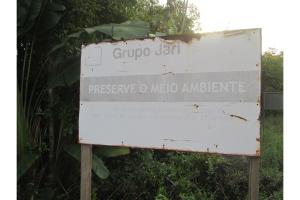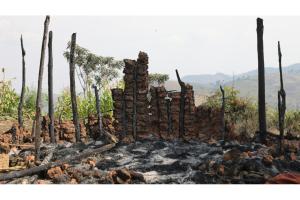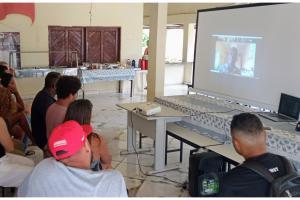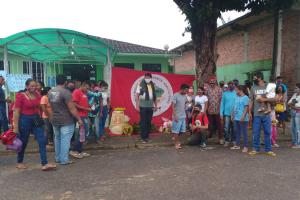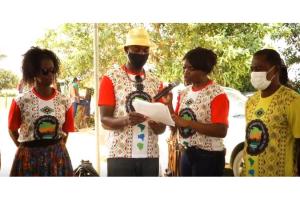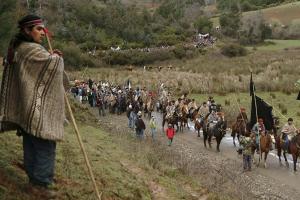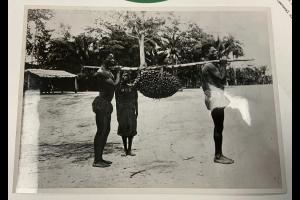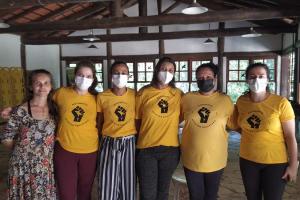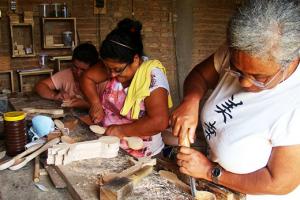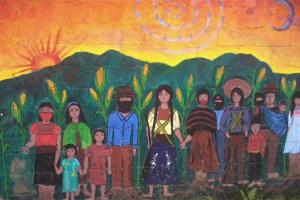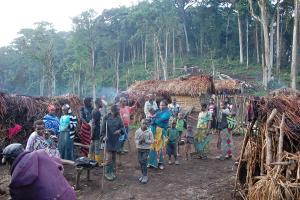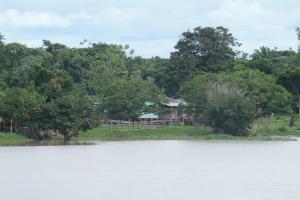Legal Land Theft
In most countries with tropical forests, governments uphold the colonial legacy that declared the State to be the owner of forest lands. This has enabled governments to legally grant land to private investors, often violating communities' customary ownership of the land. As a result, corporate activities that destroy forests continue to expand.
Quilombola Communities’ Resistance Against Suzano Company in the Southernmost part of Bahia, Brazil
This text shares reflections that emerged from our discussions with women impacted by Green Economy projects in Brazil.
WRM spoke with close allies from Brazil, Gabon, India, Mexico and Mozambique, to hear from them and learn about their understandings of development.
A group of riparian Batwa people, exasperated by the extreme poverty following their eviction in order to establish the Kahuzi Biega National Park, decided to return to their ancestral forests. Since then, they regularly clash with the “eco-guards,” sometimes leading to the loss of human lives.
Despite the government of Brazil announcing cutbacks to action against deforestation, the Green Climate Fund awarded US$ 96 million for alleged emission reductions in the Brazilian Amazon. These avoided emissions in part exist only on paper.
